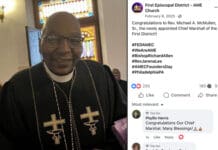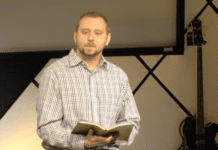Should a pastor be vulnerable and confess his own sin from the pulpit? How much honesty is too much?
In this video from the Gospel Coalition, Russell Moore, president of the Ethics and Religious Liberty Commission, offers both the dangers and benefits of being transparent in the pulpit.
He sees two risks; first, revealing a sin that the pastor struggles with from the pulpit can convey a sense of excusing or appearing to excuse the sin. Moore says the pastor can be tempted to portray the sin as an area where he struggles and is simply a part of who he is. The message received from the congregation could be that the pastor excuses the sin because none of us can keep God’s standards.
Second, in admitting the sin, the pastor might tend to reveal only a small part of the vulnerability. Moore understands how that can happen. The pastor would not want to appear to be falling apart. In some cases, the details might not be appropriate for a group of people. The result, the part the pastor decides to talk about, is probably the more mild aspect of the sin. He won’t mention the real scandalous things.
The unintended message delivered to the congregation—God provides grace for mild sins, not for the serious ones that many are dealing with.
His advice for pastors that do present sins to the audience: Speak in broad terms to convey that God’s grace is available to all.
The benefit of being transparent from the pulpit, according to Moore, is the pastor is revealing that the gospel is not coming from him—it’s coming from God to the pastor and to the people in the pews.
He considers that a significant advantage because it dispels a dangerous, implicit message that Jesus came for the well and not for the sick. Moore says when pastors talk about their struggles it tells church goers, “I’m not here as a religious expert, but like you I am a sinner, sanctified by grace,” adding, “What I’m saying is the gospel is true for me and for you.”
In a ChurchLeaders article, retired pastor Joe McKeever writes of seven things a pastor can’t do from the pulpit, one of those deals with the issue of talking about personal sin.
McKeever says a pastor cannot tell the congregation that he struggles with porn or lust.
“Some things are better dealt with privately—or at least between himself, his spouse and a faithful counselor—but never in public. The pastor who tells his people that he has a lust problem is creating more problems for himself than he can imagine. Every woman in the church will think he’s undressing her when he shakes her hand. When that happens, his ministry has come to an end.”
A different view comes from pastor Craig Groeschel. He writes in Confessions of a Pastor that his most impactful sermons are often the ones where he offers real, personal confessions of sin. In the book, Groeschel candidly describes the struggles and sins that he fights daily as a pastor—not surprisingly, the sins that beset him are the same ones that beset us all: lust, fear, worry, a judgmental spirit, selfishness and self-centeredness to name a few.














